Positive Parenting Tips For Toddler Tantrums
+ Questions From You Answered By Me!
(Please note I am not a pediatric psychiatrist nor do I have any official certification related to the field. Below is simply my own experience and opinions on the subject)
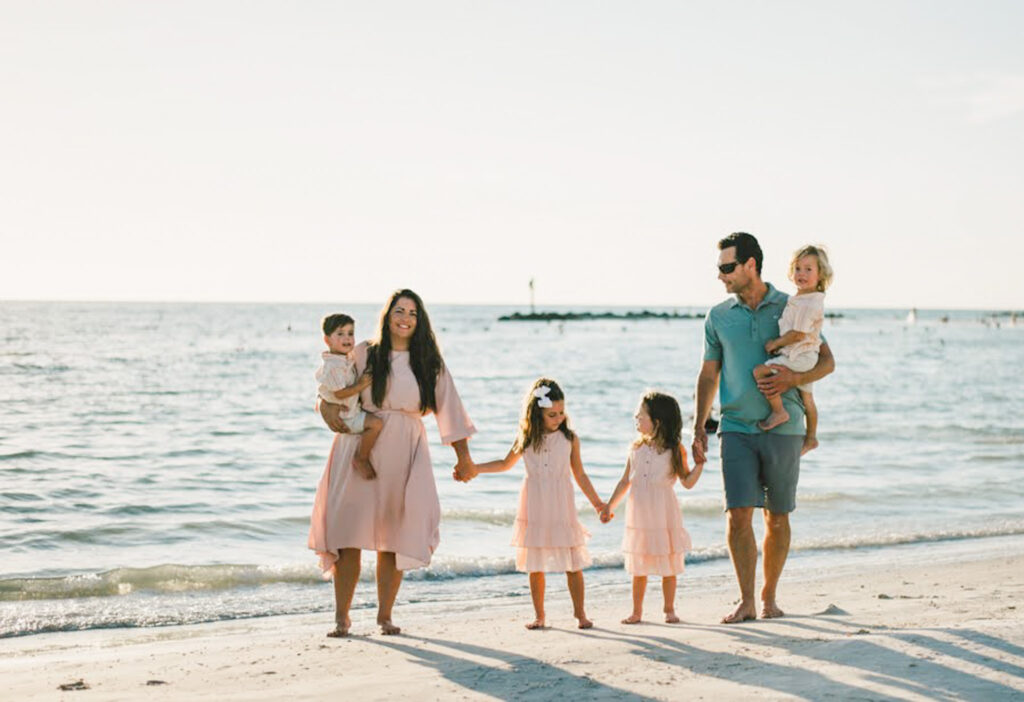
Positive parenting tips started as a fun idea for Instagram stories and quickly became a popular topic that was too big to finish via social media! I have studied positive parenting tips for close to 7 years now. While I am not a certified consultant I do use what I have learned every single day with all four of my children. For this reason I thought it could be beneficial to share some positive parenting tips for toddler tantrums and answer some questions from you on how I handle certain situations. I hope this serves as a guide for you to reference now and in the future!
For those of you who may not know my Instagram, you can find me over there at @OHHAPPYPLAY where I share a lot about our family and daily life. You can read more about me right on my blog by following this link HERE. This was my first week doing a question box for my community to ask me questions about positive parenting approaches and the response was amazing! A lot of the questions revolved around positive parenting tips for toddler tantrums so I am going to share my tips on just that! As well as answer your questions below!
Positive Parenting Tips for Responding to Tantrums
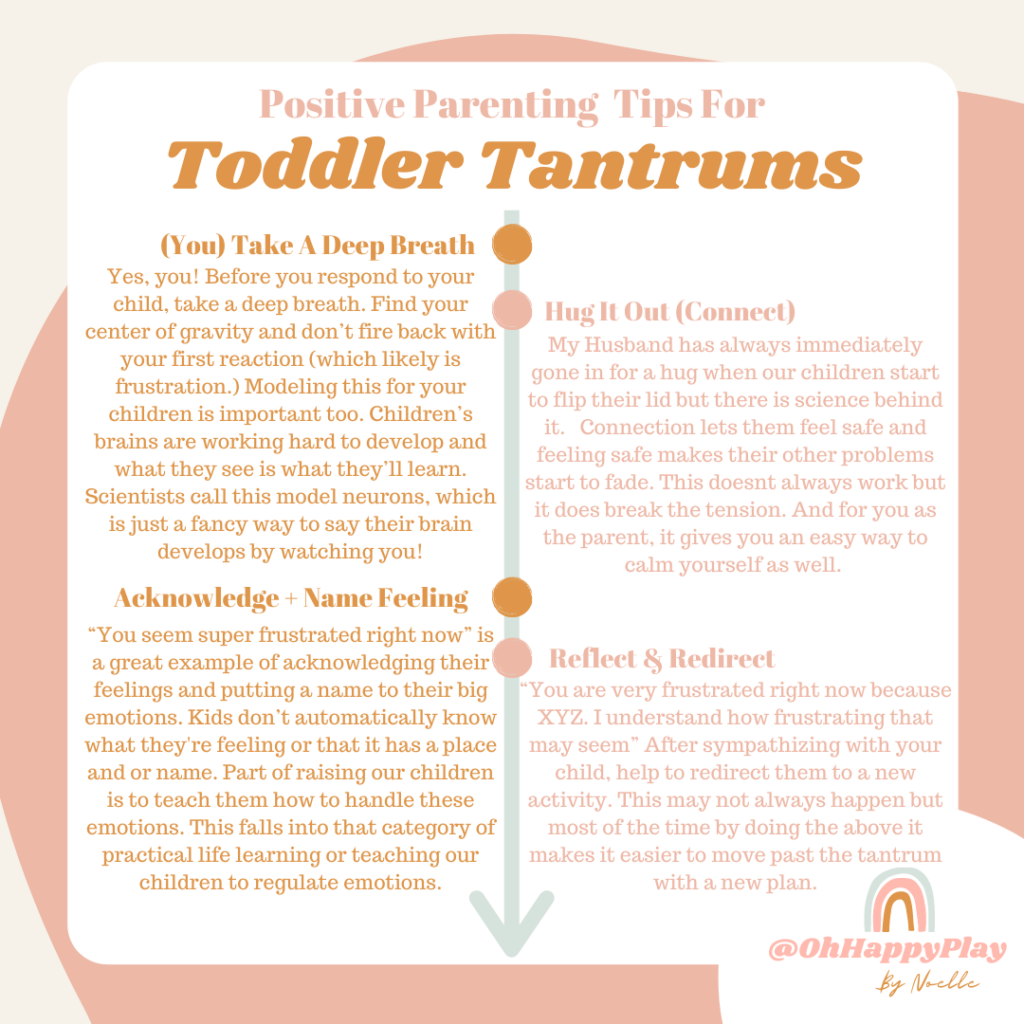
If there is one thing I know for sure, frustrations run high when you seem to be controlled by a tiny army you built yourself. This can’t just be me, right!? HA, I don’t think you’d be here if it was. But what I also know is that how we respond to our children significantly impacts how they respond and move past a situation but also how our own body does. If we can respond in a way to diffuse a problem before it escalates we will be much better for it!
- Take A Deep Breath: Yes, you! Before you respond to your child, take a deep breath. Find your center of gravity and don’t fire back with your first reaction (which likely is frustration). Modeling this for your children is important too. Children’s brains are working hard to develop and what they see is what they’ll learn. Scientists call this model neurons, which is just a fancy way to say their brain develops by watching you!
- Hug It Out: I have to give my husband all the credit for this one. Ever since the kids were little when they would start to freak out he would give them a BIG squeeze. Every time he would they would instantly melt in his arms. That connection let them feel safe and feeling safe made their other problems start to fade. This doesn’t always work but it does break the tension. And for you as the parent, it gives you an easy way to calm yourself as well.
- Acknowledge Feelings & Name Their Emotion (or explain what you see): “You seem super frustrated right now” is a great example of acknowledging their feelings and putting a name to their big emotions. Kids don’t automatically know what they are feeling or that it has a place and or name. Part of raising our children is to teach them how to handle these emotions. This falls into that category of practical life learning or teaching our children to regulate emotions.
- Reflect & Redirect: “You are very frustrated right now because XYZ. I understand how frustrating that may seem” After sympathizing with your child, help to redirect them to a new activity. This may not always happen but most of the time by doing the above it makes it easier to move past the tantrum with a new plan.
Instagram Story Questions: Answering Parenting Woes Positively
“How Do You Get Kids To Listen The First Time?” Positive Parenting Tips
Have you ever heard the term, setting yourself up for failure? Well I think this was created for this question (haha!) If there is one thing I never fully expect it is that a child will respond to being told what to do. Children crave control and it is hard when they are being told what to do all day. For this reason I always carefully word how I speak to my toddlers when I need them to do something. So my answer to this question is: Give choices when asking something of your toddler.
Instead of → “Get your shoes on!” say → “Would you like help getting your shoes on or would you like to do it all by yourself” By giving them options (with the same end goal in mind) you can allow them the autonomy by making choices for themselves!
“How To Handle Outbursts When You Ask Them To Do Something Simple”
Positive Parenting Tips
Usually when one of my children (inevitably) have an outburst after asking them to do something I get down to their level and say something along the lines of this: “You seem really upset about XYZ. Can you tell me more about why that upset you?” then just listen to whatever it is they come up with and when they’re done you can redirect them back to completing the task using the choices philosophy above! Most of the time children just want to feel like they are part of the decision making process!
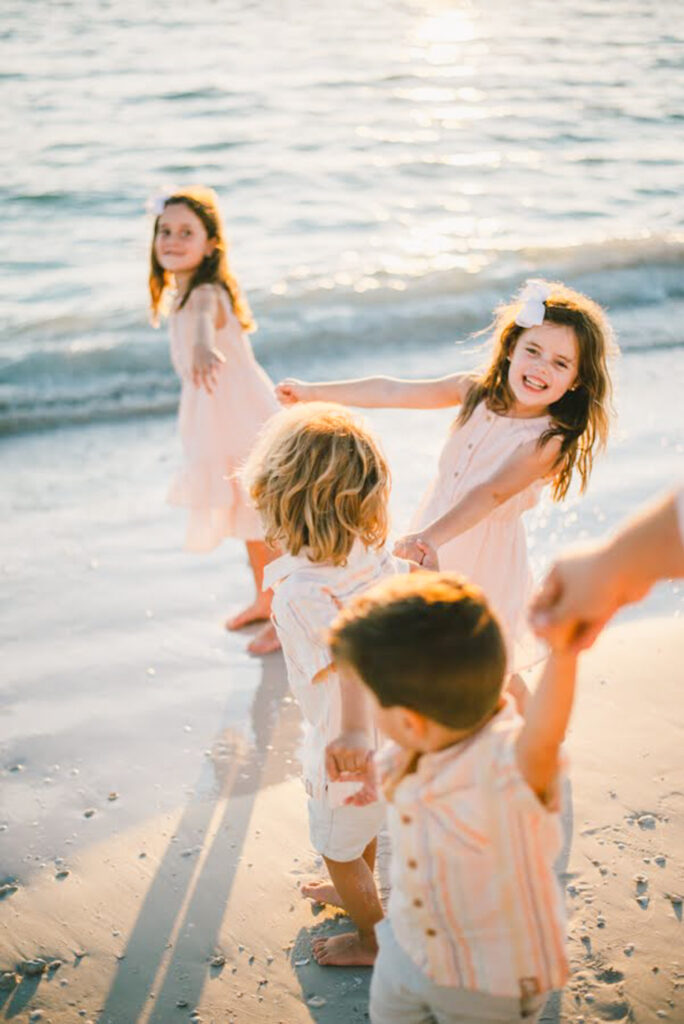
“How Do I Keep My Cool When They Don’t Listen? It Is Hard For Me Not To Yell”
Positive Parenting Tips
I think a lot of parents can relate to this one. My thoughts are this, to sit back and think about this question: “When you yell at your kids, are they more willing to do as you’re asking or more likely to resist?” and “When you yell do you feel better or you do feel worse?” I ask these two questions to myself probably everyday (haha!) BUT in all seriousness, yelling only creates turmoil and puts us in a bad mood. We take what our children do personally and oftentimes that is our own insecurities or problems. When I feel like I am about to flip my lid it is a sign for me to first take a deep breath and realize my child’s outburst is not a personal attack on me. By taking a deep breath we reduce our fight or flight reaction and puts us in a better mindset to be a calm presence for our children. This is NOT easy and it won’t happen 100% of the time. But any time you can make it work I think you will ultimately feel better for it!
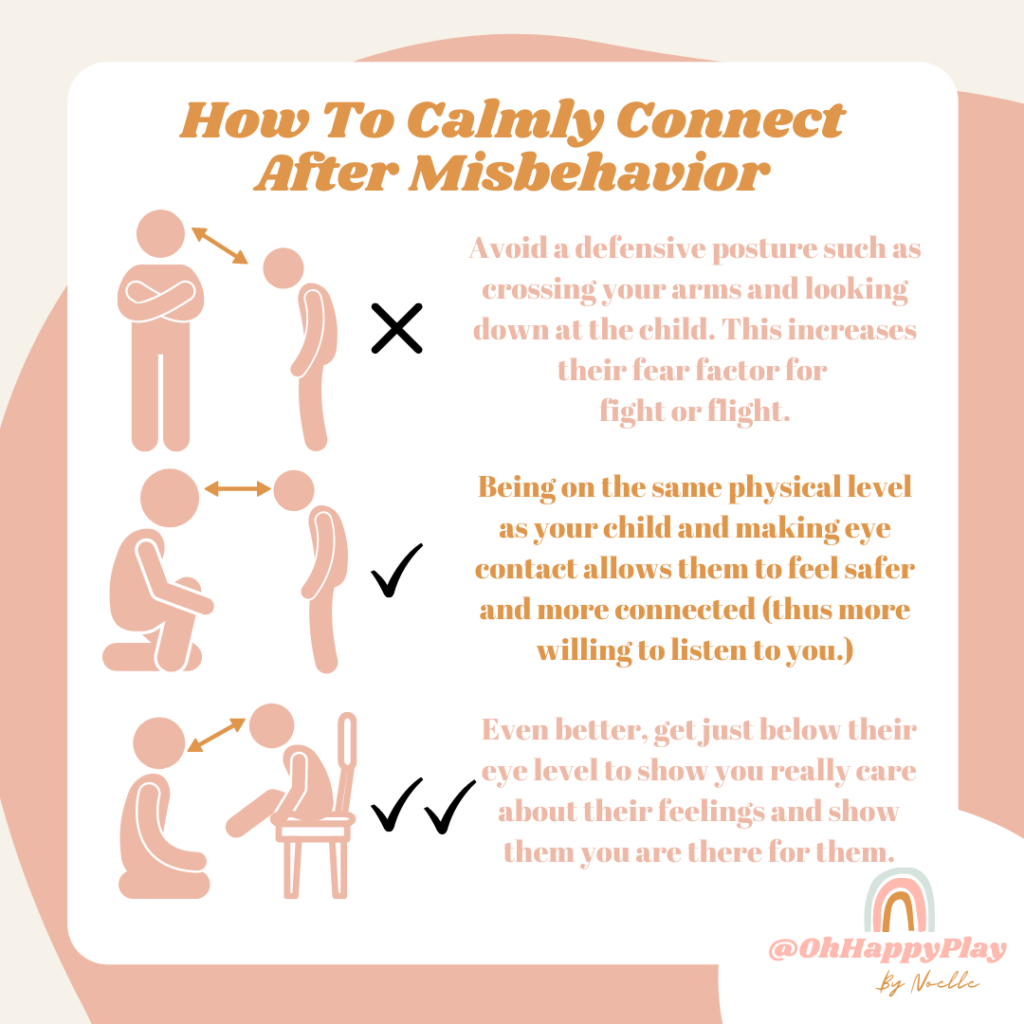
“How To Handle Fights Over A Toy” Positive Parenting Tips
This happens all the time in our house! Usually I try not to get involved between the kids with fights over this sort of thing. What I do try and do is offer them a clear line to resolution. I usually try to bring attention to observing each other’s feelings (build empathy) and then problem solving on their own. In the beginning I offer suggestions such as “Look how sad this has made your brother. What can we do so you both can play and have fun. Would you like to offer him the toy when you’re done?” This lets the other child know that YES you will get a turn when the first child is done. It’s important to make sure it is followed through with but try to do so from a distance to allow them the feeling of working out conflict together. They CAN do it!
I hope this has helped you in any way and if so please share these tips with friends on Facebook, Instagram or Pinterest using the image above or pinning the ones below! This helps to support my blog so I can keep making helpful posts for you! Thank you so much for your support!
For more like this, check out these posts:
How To Raise Capable Kids: Positive Parenting
Keep Early Risers In Bed With SleeperHero Okay To Wake Clock
Nighttime Potty Training A Toddler Tips & Products: Washabelle
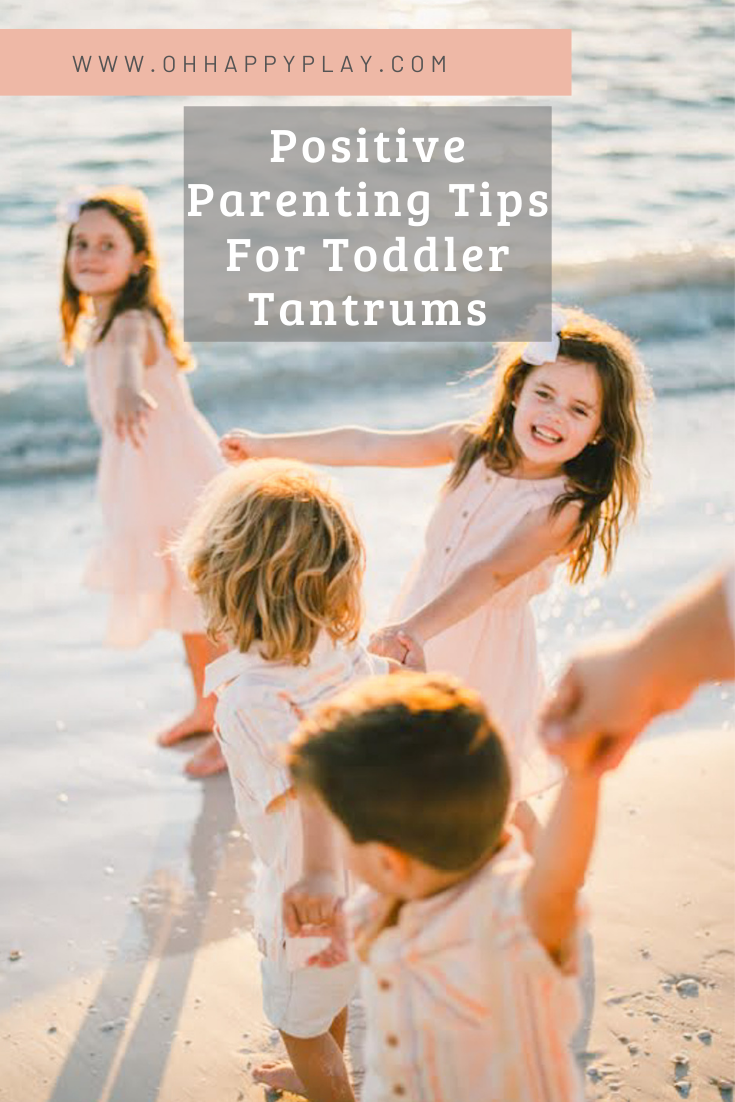

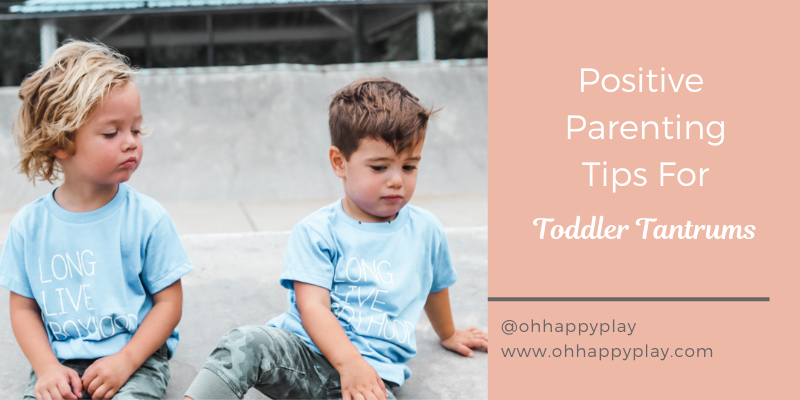
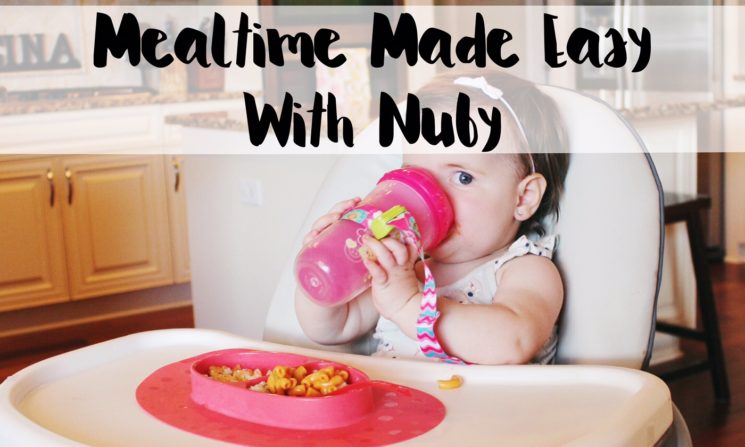
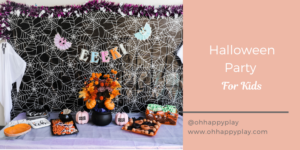
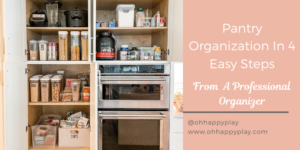
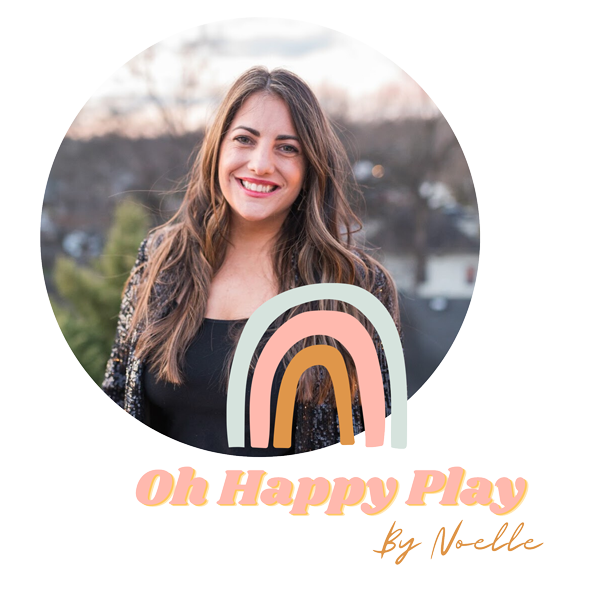

No Comments